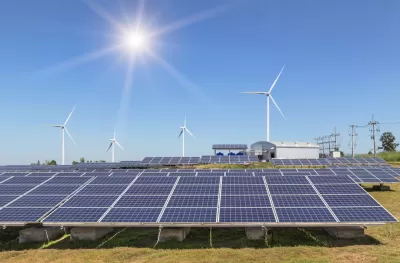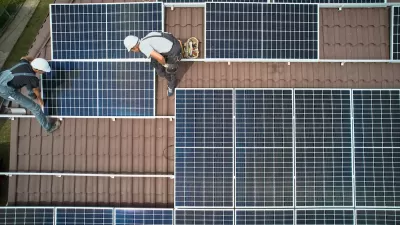The transition from fossil fuels to renewable energy must be equitable, ensuring that workers receive support, communities are revitalized, and degraded lands are restored to create a more sustainable and inclusive future.

As the global community moves from fossil fuels to renewable energy, the concept of a "just transition" is critical to ensuring that this shift is fair and inclusive. While some policies may favor oil and gas development, economic, environmental, and social factors are driving the long-term shift toward renewables. Market forces, state and local initiatives, and international climate commitments reinforce the need for a just transition, ensuring that workers, communities, and the environment are not left behind. Without a structured approach, this transition risks deepening economic inequality and worsening environmental injustices in already vulnerable areas.
For workers in fossil fuel industries, a just transition provides support through retraining programs, workforce development, and financial assistance, helping them transition into emerging sectors like solar and wind energy. Labor unions and advocacy organizations play a key role in securing fair compensation, pension guarantees, and reemployment opportunities. Including workers in decision-making processes further strengthens their role in shaping policies that affect their livelihoods and future job security.
Communities historically burdened by oil and gas extraction activities often face economic decline and environmental degradation when fossil fuel operations shut down. A just transition seeks to revitalize these areas through investments in clean energy, sustainable industries, and improved infrastructure, such as parks, transportation, healthcare, and education. Economic diversification is essential to ensuring these communities do not suffer prolonged job losses or economic stagnation as industries evolve.
Finally, just transition efforts must address land restoration in areas affected by extraction and pollution. Reforestation, soil remediation, wetland restoration, and repurposing of industrial sites into community assets—such as parks, renewable energy hubs, or affordable housing—can create hope and new opportunities while restoring ecosystems. By prioritizing equity and sustainability, a just transition not only mitigates the harms of fossil fuel dependency but also builds a stronger, more resilient future for workers, communities, and the environment.
FULL STORY: Just Transition

Trump Administration Could Effectively End Housing Voucher Program
Federal officials are eyeing major cuts to the Section 8 program that helps millions of low-income households pay rent.

Planetizen Federal Action Tracker
A weekly monitor of how Trump’s orders and actions are impacting planners and planning in America.

Ken Jennings Launches Transit Web Series
The Jeopardy champ wants you to ride public transit.

California Invests Additional $5M in Electric School Buses
The state wants to electrify all of its school bus fleets by 2035.

Austin Launches $2M Homelessness Prevention Fund
A new grant program from the city’s Homeless Strategy Office will fund rental assistance and supportive services.

Alabama School Forestry Initiative Brings Trees to Schoolyards
Trees can improve physical and mental health for students and commnity members.
Urban Design for Planners 1: Software Tools
This six-course series explores essential urban design concepts using open source software and equips planners with the tools they need to participate fully in the urban design process.
Planning for Universal Design
Learn the tools for implementing Universal Design in planning regulations.
Ada County Highway District
Clanton & Associates, Inc.
Jessamine County Fiscal Court
Institute for Housing and Urban Development Studies (IHS)
City of Grandview
Harvard GSD Executive Education
Toledo-Lucas County Plan Commissions
Salt Lake City
NYU Wagner Graduate School of Public Service





























